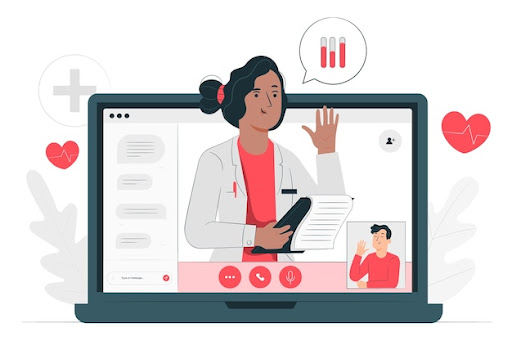VPN: A Secure Solution for Telehealth Services Data
The increasing popularity of telehealth services has raised concerns about the security of patient data. One of the most significant risks is that patient data could be hacked and even stolen if telehealth sessions are conducted over an unsecured WiFi network. A Virtual Private Network (VPN) can help mitigate this risk.
A virtual private network (VPN) is a secure connection that allows users to send and receive data over the internet as if connected to a private network. This means that all online activities are encrypted and cannot be intercepted by unauthorized third parties.
To use a VPN, doctors and patients can simply connect to the VPN server before opening the telehealth platform. This will ensure that the session is encrypted from the start. It is essential if either party in the session uses public WiFi or other unsecured networks.
Safeguarding healthcare data
Using a VPN during telehealth sessions for medical professionals and patients has multiple advantages.
As we all know, VPN protects sensitive information shared on the service. VPNs are crucial for doctors and other medical professionals because they ensure patients’ medical records remain secure and confidential. They could be medical history, diagnoses, and treatments.
Doctors and other medical professionals may sometimes need assistance assessing patients’ health conditions. They need to access medical resources and research papers that may be blocked or restricted by their location or network. Doctors can bypass these restrictions and access the necessary information by connecting to a VPN server in another country.
Lastly, by connecting to VPNs, healthcare providers and medical professionals can comply with the Health Insurance Portability and Accountability Act (HIPAA). HIPAA requires healthcare organizations, including telehealth providers, to implement various safeguards to secure protected health information (PHI), including access controls, audit controls, integrity controls, and transmission security. VPN can help with all of these points.
VPN encrypts patients’ healthcare data by converting sensitive information into unreadable text called ciphertext. It requires a decryption key to decipher.
While data encryption is not explicitly mandated by HIPAA, the Department of Health and Human Services (HHS) does require healthcare organizations to implement security measures to protect e-PHI, including with VPN. Organizations that do not use encryption must implement comparable measures to protect e-PHI.
The right VPN
Not all VPNs can work for telehealth providers, so choosing VPNs with strong encryption, a no-logs policy, and ease of use is crucial. They must also factor in connection speed, reliability, and additional security features.
Many high-quality VPNs can provide this level of security, as AES-128 and AES-256-bit encryption are the industry standard. One of the best options is to get Surfshark, which offers premium VPN services.
Some VPN providers offer features beyond basic security, such as ad blocking, malware protection, private search and antivirus. This can benefit telehealth services, as it can help improve the user experience.
Ad blockers can help to reduce distractions and improve the loading speed of websites. Meanwhile, malware protection can help to protect patients from malicious software that can steal their data or infect their devices. In addition to ad blocking and malware protection, some VPN providers offer features such as a kill switch and DNS leak protection.

